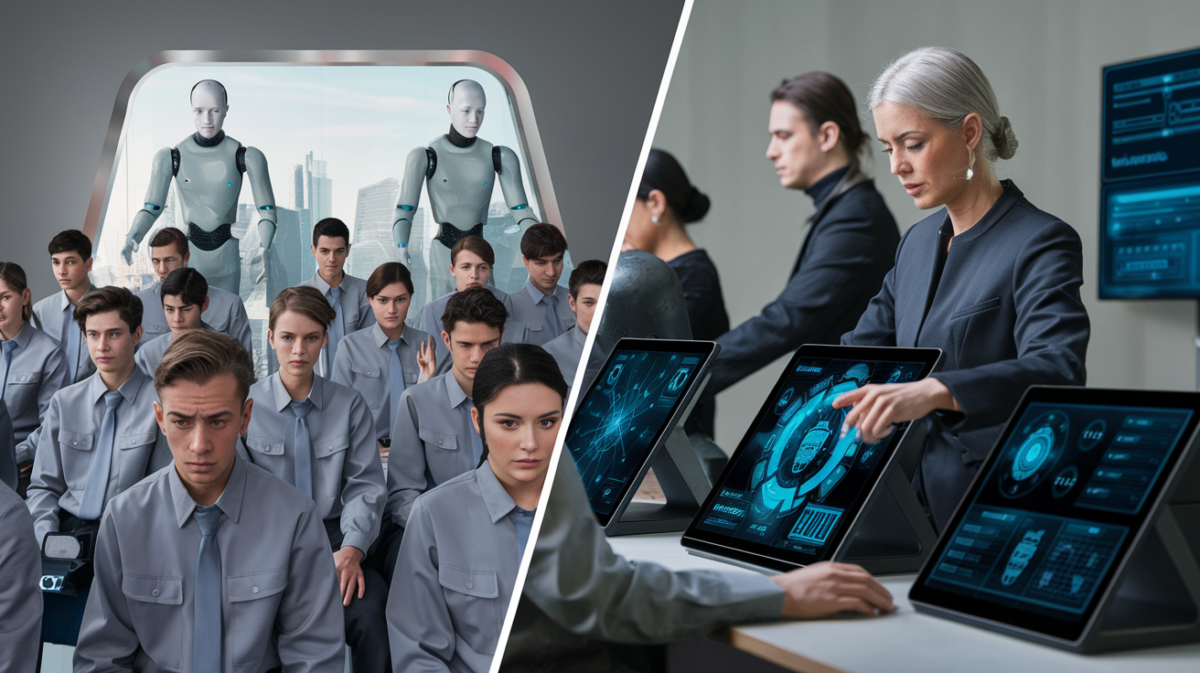The rapid integration of artificial intelligence (AI) into workplaces has ignited a heated debate: which group of workers will bear the brunt of automation—younger employees just starting their careers or seasoned professionals with years of experience? As AI continues to evolve, its impact on the workforce is becoming increasingly complex, with implications for both demographics.
The Vulnerability of Younger Workers
Younger workers, often in entry-level roles, are particularly susceptible to AI-driven automation. Many of these positions involve repetitive tasks, such as data entry, customer support, or administrative work—tasks that AI can perform efficiently and cost-effectively. Companies are increasingly opting to automate these roles rather than hire new employees, leading to fewer opportunities for those entering the job market.
- Job Market Shifts: A recent trend shows companies redistributing tasks among existing staff instead of creating new positions, leaving younger job seekers with fewer options.
- Survey Insights: According to a CNBC/SurveyMonkey Workforce Survey, 32% of workers aged 18-24 fear their jobs may become obsolete due to AI, compared to just 14% of those aged 65 and older.
The Challenges for Experienced Workers
While younger workers face displacement in entry-level roles, experienced professionals are not immune to AI’s disruptions. Many mid-to-senior-level roles involve routine processes that AI can streamline or replace entirely. For example, AI-powered tools are already enhancing productivity in fields like legal research, financial analysis, and even medical diagnostics.
- Productivity Gains: A study by Stanford University found that customer-support agents using AI tools were 14% more productive, with the least-experienced workers benefiting the most (34%).
- Routine Task Automation: Research suggests that when technology can perform a task, all affected workers—regardless of experience—face potential displacement.
Industry Leaders Weigh In
Opinions among tech executives vary on which group will be hit hardest by AI. Some predict a significant reduction in entry-level white-collar jobs, while others argue that experienced workers may be more vulnerable due to their reliance on established routines.
| Perspective | Key Insight |
|---|---|
| Dario Amodei, CEO of Anthropic | AI could eliminate up to 50% of entry-level white-collar jobs within five years. |
| Brad Lightcap, COO of OpenAI | Experienced workers may be more at risk because they are often entrenched in specific workflows. |
Adapting to the AI Revolution
The key to navigating AI’s impact lies in adaptability. Both younger and experienced workers must focus on developing skills that complement AI rather than compete with it. For younger workers, this might mean prioritizing creative problem-solving and emotional intelligence. For experienced professionals, continuous learning and upskilling will be critical to staying relevant.
Key Takeaways
- AI is reshaping the workforce, affecting both younger and experienced employees.
- Entry-level roles are at high risk of automation, but mid-career professionals are not exempt.
- Adaptability and lifelong learning will be essential for all workers.
As AI continues to advance, its effects on the job market will unfold in unpredictable ways. The question isn’t just about who will be displaced—it’s about how workers of all ages can prepare for a future where AI is an integral part of the workplace.







